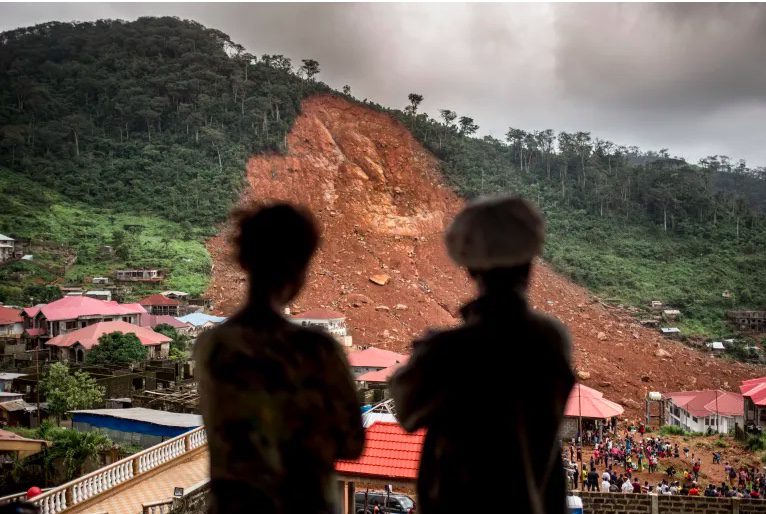
In Sierra Leone, climate change worsens human trafficking of the poor
Two women look on to the site where their homes used to be after the mudslide in Regent, Freetown, in August 2017 [Olivia Acland/Al Jazeera]
Sierra Leone’s poorest communities have long been prey to human traffickers. Climate change is making things worse.
Freetown, Sierra Leone – Zainab – last name withheld – sits in a dimly lit office in the Sierra Leonean capital Freetown, plugs a number into her phone, and inhales sharply. A man picks up after two rings.
“I hear you are offering jobs in Lebanon,” the 29-year-old Sierra Leonean social worker tells him. “Life is so hard here, I want to get out. Can you help?”
The man gives her an address in Waterloo, a densely populated town 32km (20 miles) south of Freetown, and tells her to bring 3 million Leones ($150) as an initial downpayment. She hangs up and dials a contact at the Transnational Organised Crime Unit, a police division trained by the US embassy to catch human traffickers.
“It can be difficult to reach the perpetrator,” says Emmanuel Cole, head of the unit. “Sometimes we lure them to us by making them believe someone is interested in their programme.”
It is not the first time that Zainab has helped to set up an undercover sting. Four years ago she was trafficked to Oman. Since escaping a family home where she was forced to work for free and was sexually assaulted, she has made it her mission to help others who might also be tricked into going abroad.
“I try not to be afraid,” she says. “I know I am doing the right thing.”
